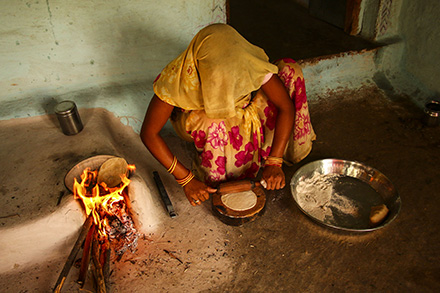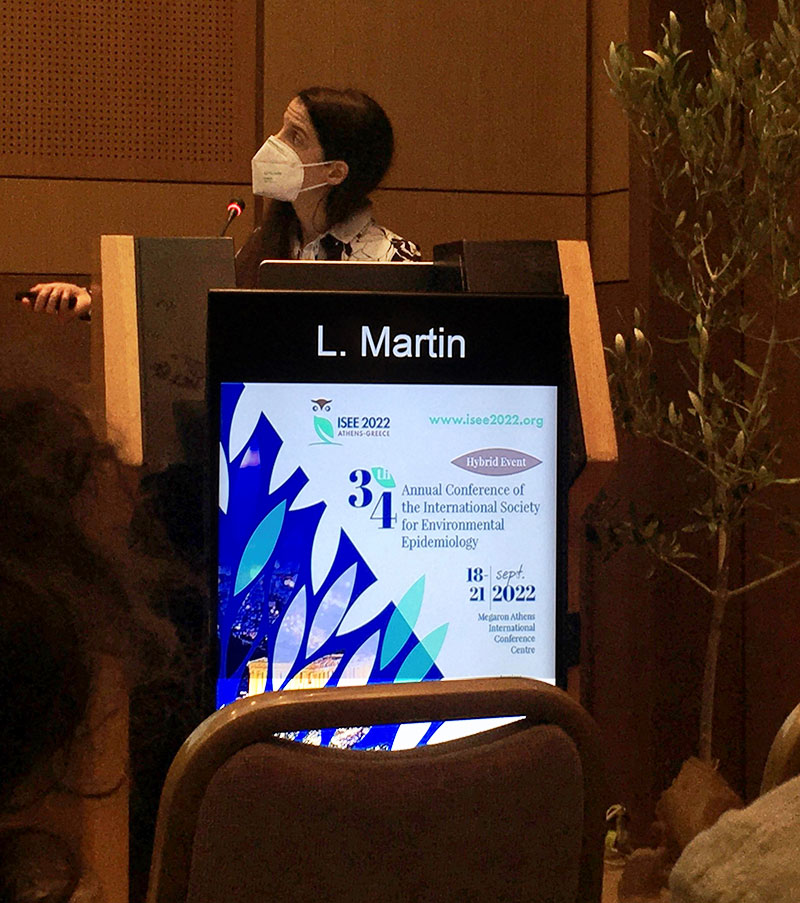By Stasia Widerynski

Cooling centers in heat-prone areas, early-warning systems for disease outbreaks, and clean cookstoves are examples of interventions designed to improve global public health. But successfully deploying such interventions, and ensuring their sustained use, takes coordinated effort and deep knowledge of local context. That's where implementation science comes in. Implementation scientists study how to promote adoption and integration of evidence-based interventions in communities that need them most, according to Lindsey Martin, Ph.D., a program officer at NIEHS.
"Implementation science helps interventions get to where they need to go by reaching populations that are disproportionately impacted by environmental exposures," Martin explained. "Implementation researchers identify barriers to adoption, then develop and test strategies to overcome them."
The Clean Cooking Implementation Science Network (ISN) , hosted by the Center for Global Health Studies at the Fogarty International Center, is one example of how implementation science can be applied to a global environmental health issue. The Clean Cooking ISN was a partnership among the NIH, the U.S. Agency for International Development, the Centers for Disease Control and Prevention, the U.S. Environmental Protection Agency, and the Clean Cooking Alliance. It supported research into improving adoption and scale-up of clean cookstoves in low- and middle-income countries.
Indoor stoves that burn solid organic material, kerosene, or coal generate hazardous household air pollution, a major global public health threat . The aim of Clean Cooking ISN was to identify hurdles to clean cooking technology uptake, develop interventions, and share results.
"Implementation scientists look for potential solutions while finding obstacles that for some reason prevent deployment, adoption, or sustained use of an intervention," Martin said. "In the case of clean cooking, a barrier could be the need to increase environmental health literacy, the health effects of household air pollution, or a need for financial assistance to promote the uptake of a cleaner burning cookstove."
A Local Lens
Funding Opportunities for Implementation Science
Below are open funding opportunities related to implementation research at NIH:
A critical component of implementation science is gathering local input on needs, problems, and solutions.
"Implementation science is inherently a field that relies on partnerships with communities, with ministries of health, and with different sectors, such as education, health care, transportation, and more," Martin said. "That community-engaged approach helps ensure that that the strategies used to encourage the uptake of the intervention are promoting health equity."
For example, with support from NIEHS, Lisa Marie Thompson, Ph.D., of Emory University works with rural villages in Guatemala to find ways to reduce household waste burning using implementation science approaches. Solid waste combustion is a major environmental health hazard in low-resource countries that lack proper waste management infrastructure.
Village members have the opportunity to participate in 12-week-long working groups that explore alternative approaches to burning plastic waste. The findings will be incorporated into community-driven public health actions with policymakers, according to the research team , and could potentially benefit other areas where open-waste burning contributes to air pollution.
Fogarty International Center, in partnership with other NIH Institutes, Centers and Offices, including NIEHS, also participates in the Global Alliance for Chronic Disease , which has funded many implementation research projects aimed at broadening the reach of interventions for mental health disorders, cancer, and lung disease. The latest funding opportunity focused on implementation research addressing the noncommunicable disease epidemic in city environments in low- and middle-income countries and American Indian and Alaska Native populations in U.S. cities.

NIEHS has also developed workshops and trainings to build capacity in implementation science for environmental health. In 2022, for example, Martin, Gila Neta, Ph.D., of the National Cancer Institute, and Dara Blachman-Demner, Ph.D., of the Office of Behavioral and Social Sciences Research, co-chaired the Advancing Environmental Health Equity through Implementation Science virtual workshop, which drew a global audience. The popular event prompted Martin to develop follow-up workshops and trainings, one of which took place at the 2022 International Society for Environmental Epidemiology conference in Athens, Greece.
"I hope that as more environmental health scientists become aware of the role of that implementation science can play in advancing environmental health equity, more will be interested in learning about this exiting field," Martin said. "Implementation science is a crucial tie between evidence and action."


